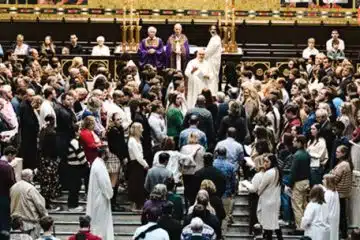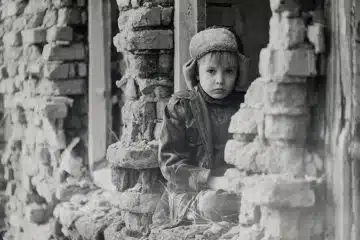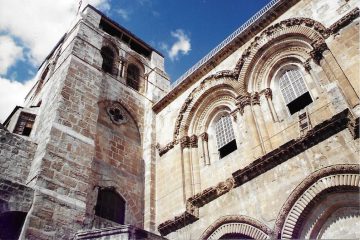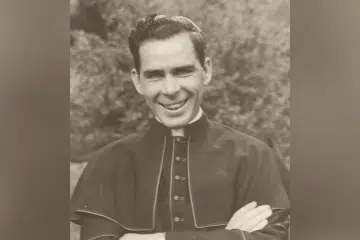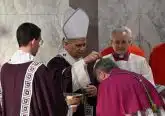Sunday Scripture: I am the bread of life
June 26, 2011
By Sister Betty J. Lillie, S.C.
The Most Holy Body and Blood of Christ: Deuteronomy 8: 2-3, 14b-16a; Psalm 147: 12-15, 19-20; 1 Corinthians 16-17; John 6:51-58.
In the Gospel according to John, Jesus performed seven signs so that the people might believe that God had truly sent Him (John 11:42). The fourth sign (John 6:1-14) and the fifth sign (John 6:16-21) are in Chapter 6, which is sometimes referred to as the Eucharistic Discourse. It begins with the story of His feeding the 5,000, and then His walking across the Lake of Galilee. The high point of His talk with His disciples crystallizes in Him saying, “I am the bread of life; he who comes to me shall not hunger, and he who believes in me shall never thirst” (John 6:35).
Jesus himself is God’s gift of sustenance for time and eternity. Several times the text repeats the concept in various forms (John 6: 35, 48, 51, 53). Then Jesus said, “Unless you eat the flesh of the Son of man and drink His blood, you have no life in you; he who eats my flesh and drinks my blood has eternal life, and I will raise him up on the last day.”
Then moving to our second reading from Paul’s Letter to the Corinthians, we read the apostle’s emphasis on the sublime nature of this wonderful sacrament. “The cup of blessing which we bless, is it not a participation in the blood of Christ? The bread which we break, is it not a participation in the body of Christ? Because there is one bread we who are many are one body, for we all partake of the one bread” (1 Corinthians 10:16-17).
There we have the sacramental sign of our unity in the church. The many grapes that become one in the wine, and the many grains of wheat that become one bread, are a symbol of the unity of the faithful throughout the world for all time.
Now we can look back to the Exodus tradition and remember that we do not live by bread alone, but by everything that proceeds out of the mouth of the Lord (Deuteronomy 8:3). We remember also the figures of God’s loving care of His people in their desert wanderings. He gave them water from the rock and manna that was like bread from heaven. There are also many figures in the Passover celebration that carry over even to our time.
In our psalm response we have the concept that the Lord fills us with the finest wheat and gives us His word as He has not given it to many other peoples. For this it is good to sing praises to our God. As the psalmist sings, “Praise the Lord, O Jerusalem! Praise your God, O Zion!”
The church has many beautiful eucharistic prayers and hymns that many of us will likely remember. One of them goes like this: “O sacred banquet in which Christ is received, the memory of His passion is renewed, the mind is filled with grace, and a pledge of future glory is given to us.”
Another one is the Pange Lingua that ends with the Tantum Ergo Sacramentum that we sing at Benediction. “To the Father, Son and Holy Spirit may endless praise and honor be given.”
Sister Betty Jane is a faculty member at the Athenaeum of Ohio.



